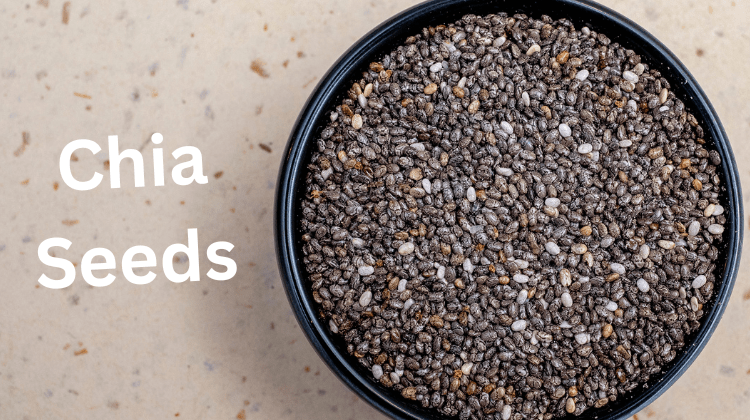Hormonal balance is a key pillar of women’s overall health, influencing everything from mood, energy levels, and weight management to reproductive wellness and skin health. When hormones are in harmony, the body functions optimally, but even slight imbalances can lead to symptoms such as irregular periods, mood swings, fatigue, and digestive issues. Factors like stress, aging, lifestyle choices, and diet all play a significant role in maintaining or disrupting this delicate equilibrium.
Scientific studies suggest that regular flax seed consumption may help stabilize menstrual cycles, ease menopausal discomfort, improve skin health, and support reproductive wellness. With their mild nutty flavor and versatile use in meals, flax seeds can be a simple yet powerful addition to a hormone-friendly diet.
In the sections ahead, we’ll explore exactly how they work, the science behind their benefits, and the best ways to include them in your daily routine for long-term hormonal health.
Understanding Hormonal Balance in Women
Hormones act as the body’s chemical messengers, controlling a wide range of processes that affect a woman’s physical, emotional, and reproductive health. When these hormones are produced in the right amounts and work in harmony, they keep everything—from mood and metabolism to fertility and skin—functioning smoothly. Even small shifts in hormone levels can create noticeable changes in the body.
Key Hormones Affecting Women’s Health
- Estrogen – The primary female sex hormone that regulates menstrual cycles, supports bone density, influences mood, and affects skin elasticity.
- Progesterone – Works alongside estrogen to regulate periods, prepare the uterus for pregnancy, and promote calmness and better sleep.
- Testosterone – Present in smaller amounts in women, it supports muscle strength, energy levels, and sexual desire.
- Cortisol – The stress hormone that affects metabolism, immune function, and mood; chronic elevation can disrupt other hormones.
- Thyroid Hormones (T3, T4) – Regulate metabolism, energy production, and temperature balance; imbalances can lead to fatigue, weight changes, and mood shifts.
Common Causes of Hormonal Imbalance
Hormonal fluctuations are a normal part of life, but certain factors can trigger long-term imbalance:
- Menstrual Cycle Changes – Natural hormonal variations occur throughout a woman’s cycle, but irregular patterns may signal deeper issues.
- Menopause and Perimenopause – Estrogen and progesterone naturally decline, often causing hot flashes, mood changes, and bone density loss.
- Chronic Stress – Sustained high cortisol levels can suppress reproductive hormones and disrupt menstrual regularity.
- Poor Diet and Nutrient Deficiency – Lack of essential fatty acids, protein, and micronutrients can impair hormone production.
- Polycystic Ovary Syndrome (PCOS) – A hormonal disorder marked by excess androgens, irregular cycles, and insulin resistance.
- Thyroid Disorders – Overactive or underactive thyroid affects metabolism, mood, and menstrual health.
Symptoms to Watch For
Hormonal imbalances can manifest in subtle or obvious ways, including:
- Irregular or missed periods
- Unexplained weight gain or loss
- Persistent fatigue or low energy
- Mood swings, anxiety, or depression
- Acne or changes in skin texture
- Hair thinning or excess hair growth
- Trouble sleeping or poor sleep quality
Key Nutrients in Flax Seeds that Support Hormonal Health
Flax seeds are more than just a fiber-rich superfood—they contain a unique blend of nutrients that directly support hormone regulation in women. By influencing estrogen activity, reducing inflammation, and promoting healthy metabolism, these nutrients help maintain balance during menstruation, menopause, and other hormonal transitions.
- Fiber for Estrogen Detox and Blood Sugar Balance
The high soluble and insoluble fiber content in flax seeds plays a vital role in hormonal health. Fiber helps the body eliminate excess estrogen through the digestive tract, which can reduce PMS symptoms and estrogen dominance. It also stabilizes blood sugar levels, preventing insulin spikes that may disrupt reproductive hormones.
- Plant-Based Phytoestrogens (Lignans)
Flax seeds are the richest known dietary source of lignans, plant compounds that act as gentle phytoestrogens. They can bind to estrogen receptors in the body, helping to regulate estrogen levels—whether they are too high or too low. This makes them especially helpful for easing menopausal symptoms, supporting regular menstrual cycles, and promoting reproductive wellness.
- Omega-3 Fatty Acids (ALA) to Reduce Inflammation
The alpha-linolenic acid (ALA) in flax seeds is a plant-based omega-3 that helps reduce inflammation, a key factor in many hormonal imbalances, including PCOS and thyroid disorders. By calming inflammation, omega-3s also support adrenal health, which is important for maintaining balanced cortisol levels.
- Magnesium for Stress and PMS Relief
Magnesium in flax seeds supports muscle relaxation, stress reduction, and better sleep quality—three factors that help prevent hormonal fluctuations. It can also ease menstrual cramps and reduce anxiety linked to hormonal shifts.
- Vitamin B1 and Selenium for Energy and Thyroid Support
- Vitamin B1 (Thiamine) helps convert food into energy and supports nerve health, combating fatigue often linked to hormonal imbalances.
- Selenium acts as an antioxidant and aids in the production of thyroid hormones, keeping metabolism and mood stable.
How Flax Seeds Affect Hormonal Health in Women
Flax seeds contain bioactive compounds and essential nutrients that interact with the body’s endocrine system, influencing how hormones are produced, metabolized, and balanced. Their effects are particularly significant for women, as they target common areas of hormonal concern, from menstrual cycles to menopause and conditions like PCOS and thyroid disorders.
Phytoestrogens and Estrogen Regulation
One of the most powerful ways flax seeds support hormonal health is through their lignans, a form of phytoestrogen. These plant compounds can mimic estrogen in the body by binding to estrogen receptors. Unlike synthetic hormones, lignans have a modulatory effect—they can increase estrogen activity when levels are low (as in menopause) or reduce its impact when levels are high (as in estrogen dominance).
- During Menstrual Cycles: Lignans help maintain hormonal stability, reducing mood swings and regulating ovulation.
- During Menopause: They provide mild estrogen-like effects that can ease symptoms without causing sharp hormonal spikes.
Role in Menstrual Health
Regular consumption of flax seeds can help normalize the menstrual cycle by influencing hormonal fluctuations.
- Cycle Regulation: Studies suggest flax seeds may help lengthen short luteal phases or balance irregular periods.
- PMS Relief: Their anti-inflammatory fats and hormone-balancing lignans reduce bloating, cramping, and breast tenderness before periods.
Support During Menopause
Menopause brings a natural decline in estrogen and progesterone, often leading to discomfort. Flax seeds offer a gentle, food-based solution.
- Easing Hot Flashes & Night Sweats: Lignans provide mild estrogenic activity, reducing the frequency and severity of these symptoms.
- Bone Health Maintenance: Estrogen decline increases osteoporosis risk; flax seeds supply magnesium and omega-3s, which support bone density alongside a calcium-rich diet.
PCOS and Hormonal Acne
Polycystic Ovary Syndrome is marked by excess androgens (male hormones) and insulin resistance. Flax seeds can help on both fronts.
- Balancing Androgens: Lignans may lower free testosterone levels, helping reduce symptoms like excess hair growth and acne.
- Improving Insulin Sensitivity: Their high fiber content slows glucose absorption, stabilizing blood sugar—a key step in managing PCOS-related hormonal imbalance.
Thyroid Support
Thyroid hormones are essential for metabolism, mood, and energy, and inflammation often worsens thyroid conditions.
- Inflammation Control: The omega-3 ALA in flax seeds helps lower systemic inflammation, easing stress on the thyroid gland.
- Nutrient Support: Selenium and magnesium from flax seeds aid thyroid hormone production and energy metabolism.
Best Ways to Add Flax Seeds to Your Diet for Hormonal Support
For women aiming to improve hormonal balance, the key isn’t just eating flax seeds—it’s eating them in the right form, amount, and combinations that enhance their hormone-friendly compounds.
Choosing the Right Form for Maximum Benefit
The hormone-regulating lignans and omega-3 fats in flax seeds are locked inside a tough outer shell. Eating them whole won’t release much of their goodness, so freshly ground flax seeds are your best option. Grinding them just before use helps preserve delicate nutrients that can break down over time.
Flaxseed Oil for Targeted Support
Flaxseed oil delivers concentrated omega-3s, which can help reduce inflammation linked to hormonal disorders like PCOS and thyroid imbalance. For best results:
- Drizzle over warm—not hot—foods to protect its nutrients.
- Pair with leafy greens or vegetables rich in vitamin C, which can improve the body’s use of omega-3 fats.
How Much is Ideal for Hormonal Health?
A daily serving of 1–2 tablespoons of ground flax seeds provides enough lignans to influence estrogen balance without overloading your system. This slow, steady intake supports menstrual cycle regularity, eases menopausal symptoms, and aids in hormone detoxification through the gut.
Hormone-Focused Meal Ideas
Instead of thinking of flax seeds as a “sprinkle-on-anything” ingredient, try adding them in ways that specifically support hormone health:
- Cycle-Sync Smoothies: Blend flax seeds with berries during the first half of your cycle to support natural estrogen production.
- Menopause-Soothing Soups: Stir ground flax seeds into warm pumpkin or lentil soup for extra phytoestrogens.
- PCOS-Friendly Breakfasts: Mix flax seeds with Greek yogurt and cinnamon to promote stable blood sugar and reduced androgen activity.
- Thyroid-Nourishing Bowls: Pair flax seeds with selenium-rich Brazil nuts and magnesium-packed leafy greens.
When Flax Seeds Might Not Be the Right Fit for Your Hormonal Health
- If You’re Managing Hormone-Sensitive Conditions
Women diagnosed with or recovering from estrogen-dependent cancers—such as certain types of breast, ovarian, or uterine cancer—should talk to their healthcare provider before adding flax seeds to their diet. While lignans can have hormone-balancing effects, they still interact with estrogen pathways, and that needs to be considered on a case-by-case basis.
- If Your Circulation or Blood Pressure Needs Careful Monitoring
Flax seeds’ natural compounds can gently thin the blood and support heart health, but for women with naturally low blood pressure, those on anticoagulants, or anyone preparing for surgery, this effect might not be ideal. Always discuss dosage and safety with your doctor if you’re in these groups.
- If You Have a Seed Sensitivity or Digestive Reaction
Even hormone-friendly foods can cause discomfort if your body is sensitive to them. Women with seed allergies or a history of digestive sensitivity should introduce flax seeds slowly and watch for symptoms like bloating, itching, or rashes.
Scientific Studies Supporting Flax Seeds’ Role in Hormonal Balance
Flax Seeds and Estrogen Regulation
A clinical trial in the American Journal of Clinical Nutrition found that a 16-week supplementation with ground flaxseed altered estrogen metabolism by increasing the production of protective estrogen metabolites (2-hydroxyestrone) more than soy powder did. PubMed
Another investigation concluded that dietary flaxseed may modulate estrogen levels and metabolism in postmenopausal women. Taylor & Francis Online
Menopausal Symptom Relief
One study documented a reduction in hot flashes and night sweats among women taking flaxseed supplements, though the differences from placebo weren’t statistically significant. PMC
An Iraqi clinical trial showed that flaxseed powder significantly eased symptoms like vaginal dryness, bone pain, hot flashes, and night sweats in postmenopausal women. bijps.uobaghdad.edu.iq
Impact on PCOS and Hormonal Acne
A randomized controlled trial found that women with PCOS who took 30 g/day flaxseed powder for 12 weeks experienced notable improvements in insulin resistance, inflammation markers (hs-CRP), lipid profiles, and androgen-related symptoms. BioMed Central
A case study also reported that similar flaxseed supplementation helped regulate hormonal levels in a woman with PCOS. Scholars@Duke
Additional Lifestyle Tips for Hormonal Balance
While flax seeds can be a valuable ally in women’s hormonal health, they work best as part of a holistic lifestyle that supports the body’s natural endocrine rhythm. Beyond nutrition, daily habits can directly influence how your hormones are produced, metabolized, and balanced.
1. Eat a Balanced, Whole-Foods Diet
A hormone-friendly diet is built on fresh, minimally processed foods that provide steady energy and essential nutrients.
- Focus on colorful vegetables, leafy greens, quality protein, healthy fats, and fiber-rich carbohydrates.
- Include hormone-supportive foods like cruciferous vegetables (broccoli, kale), which aid in estrogen metabolism, and fermented foods for gut health—since a healthy gut microbiome is key for balanced estrogen recycling.
- Limit refined sugars and trans fats, which can trigger insulin spikes and inflammation, disrupting hormonal stability.
2. Manage Stress to Protect Hormonal Harmony
Chronic stress elevates cortisol, which can interfere with estrogen, progesterone, and thyroid function.
- Practice mind-body techniques like meditation, yoga, deep breathing, or journaling.
- Schedule short breaks during the day to reset your nervous system.
- Even 10 minutes of calm breathing can lower cortisol and improve hormonal signaling.
3. Move Your Body Regularly
Exercise influences insulin sensitivity, reduces stress hormones, and boosts endorphins—all crucial for hormonal health.
- Combine strength training (to support metabolism and bone health) with low-impact cardio like walking, cycling, or swimming.
- Avoid overtraining, as excessive high-intensity workouts can elevate cortisol and disrupt menstrual cycles.
4. Prioritize Sleep and Stay Hydrated
Your body’s hormone production and repair processes peak during deep, restful sleep.
- Aim for 7–9 hours per night, keeping a consistent bedtime and wake-up schedule.
- Hydration supports nutrient transport and detoxification, which are essential for hormone metabolism. Drink water throughout the day and include hydrating foods like cucumber, berries, and citrus.
Conclusion
Flax seeds are more than just a trendy superfood—they’re a science-backed ally for women’s hormonal health. Rich in lignans, omega-3 fatty acids, fiber, and essential micronutrients, they can help regulate estrogen levels, ease menstrual and menopausal discomfort, support insulin sensitivity in PCOS, and promote overall endocrine balance.
However, every woman’s hormonal profile is unique. Factors like age, menstrual cycle phase, existing health conditions, and medications can influence how your body responds. That’s why it’s important to consult a qualified healthcare provider before making significant dietary changes, especially if you have hormone-sensitive conditions, thyroid disorders, or other chronic illnesses.
By adding flax seeds consistently—whether in smoothies, salads, baked goods, or sprinkled over breakfast—you can harness their gentle yet powerful hormone-supporting properties as part of a well-rounded, whole-food diet. When paired with healthy lifestyle habits like stress management, regular movement, restorative sleep, and hydration, flax seeds can be a small daily habit with big benefits for your long-term hormonal well-being.
FAQs About Flax Seeds & Hormonal Balance
Can flax seeds help regulate periods?
Yes. Flax seeds are rich in lignans, plant-based phytoestrogens that can help balance estrogen levels in the body. This may promote more regular menstrual cycles and reduce PMS symptoms like bloating, mood swings, and cramps. Many women use the “seed cycling” method, which includes flax seeds in the follicular phase to support cycle regulation.
How long does it take for flax seeds to balance hormones?
While results vary, research and anecdotal evidence suggest that consistent daily intake over 6–12 weeks may bring noticeable changes in menstrual regularity, PMS relief, or menopausal comfort. Hormonal balance is gradual, so patience and consistency are key.
Is flaxseed good for women with PCOS?
Yes. Flax seeds may help lower androgen (male hormone) levels and improve insulin sensitivity, both of which are crucial in managing PCOS. They also provide anti-inflammatory omega-3s and gut-friendly fiber, which support metabolic and hormonal health in women with PCOS.
Can flax seeds increase estrogen levels?
Flax seeds don’t necessarily “increase” estrogen; instead, they help modulate estrogen activity. Their lignans can mimic estrogen when levels are low (e.g., menopause) or compete with stronger estrogens when levels are high, supporting overall hormonal balance.
Should I eat flax seeds daily for hormonal health?
For most women, 1–2 tablespoons of ground flax seeds daily is safe and beneficial for hormonal support. Ground flax seeds are easier to digest and absorb than whole seeds. However, women with certain hormone-sensitive conditions should speak with a healthcare provider before starting daily flaxseed intake.



